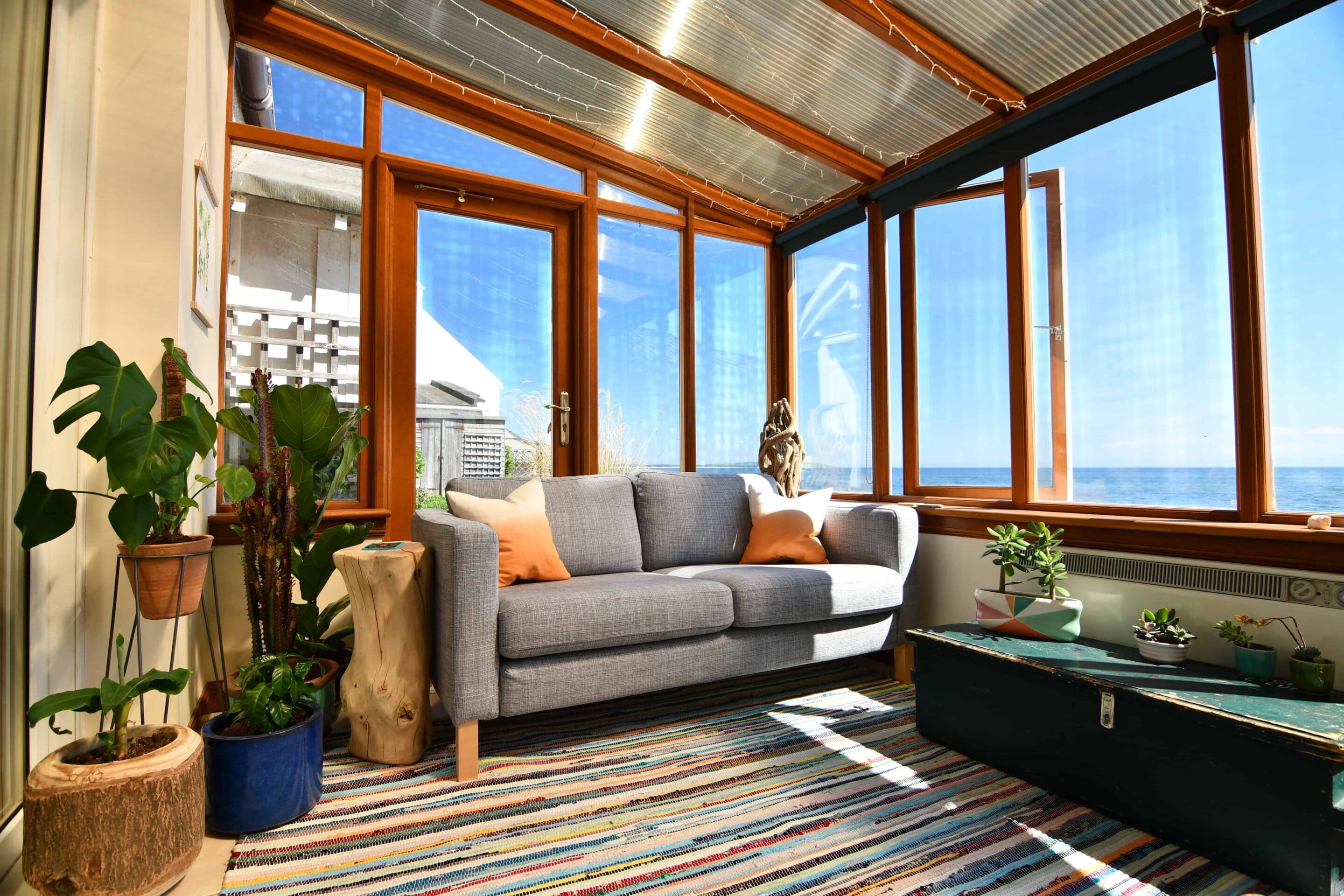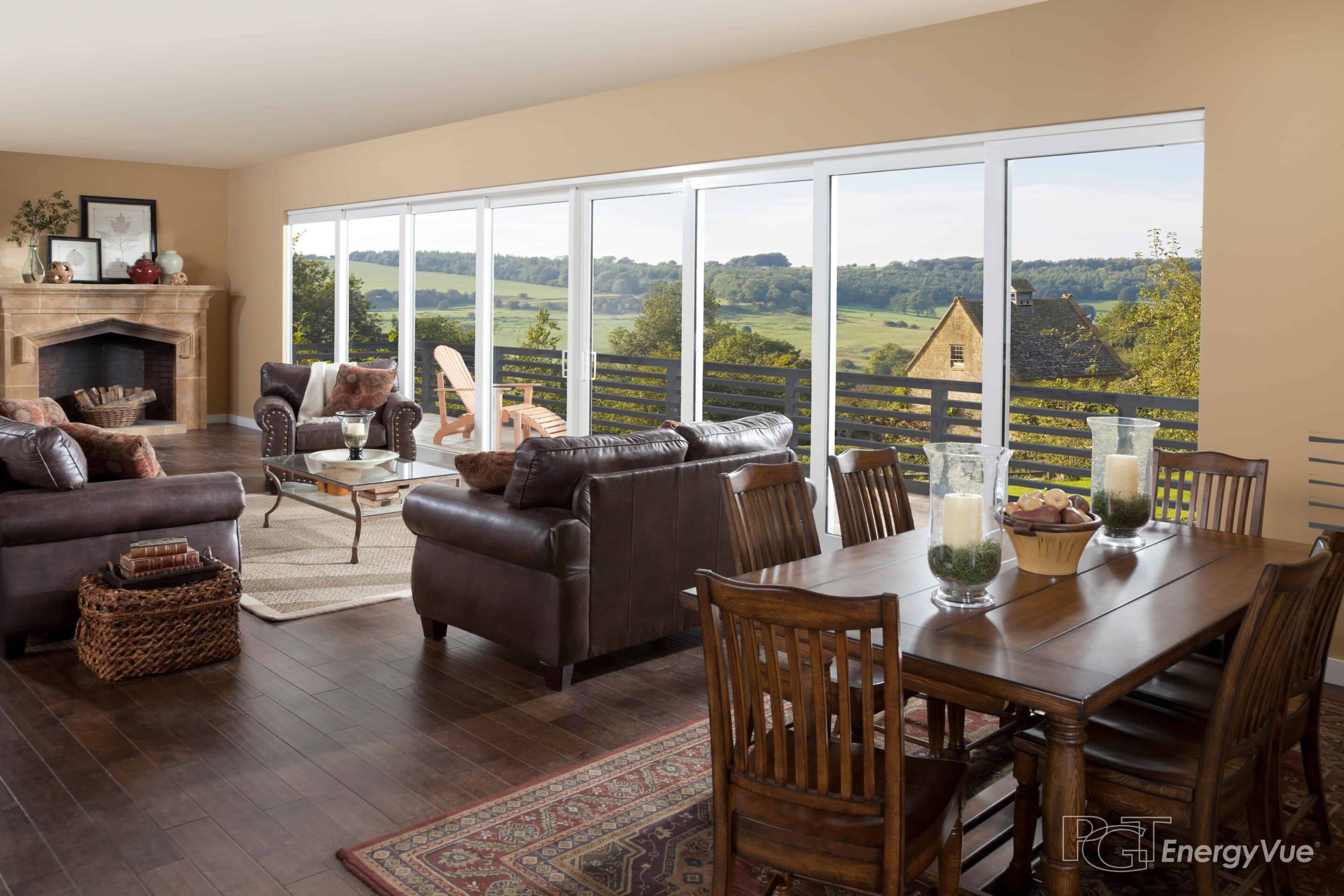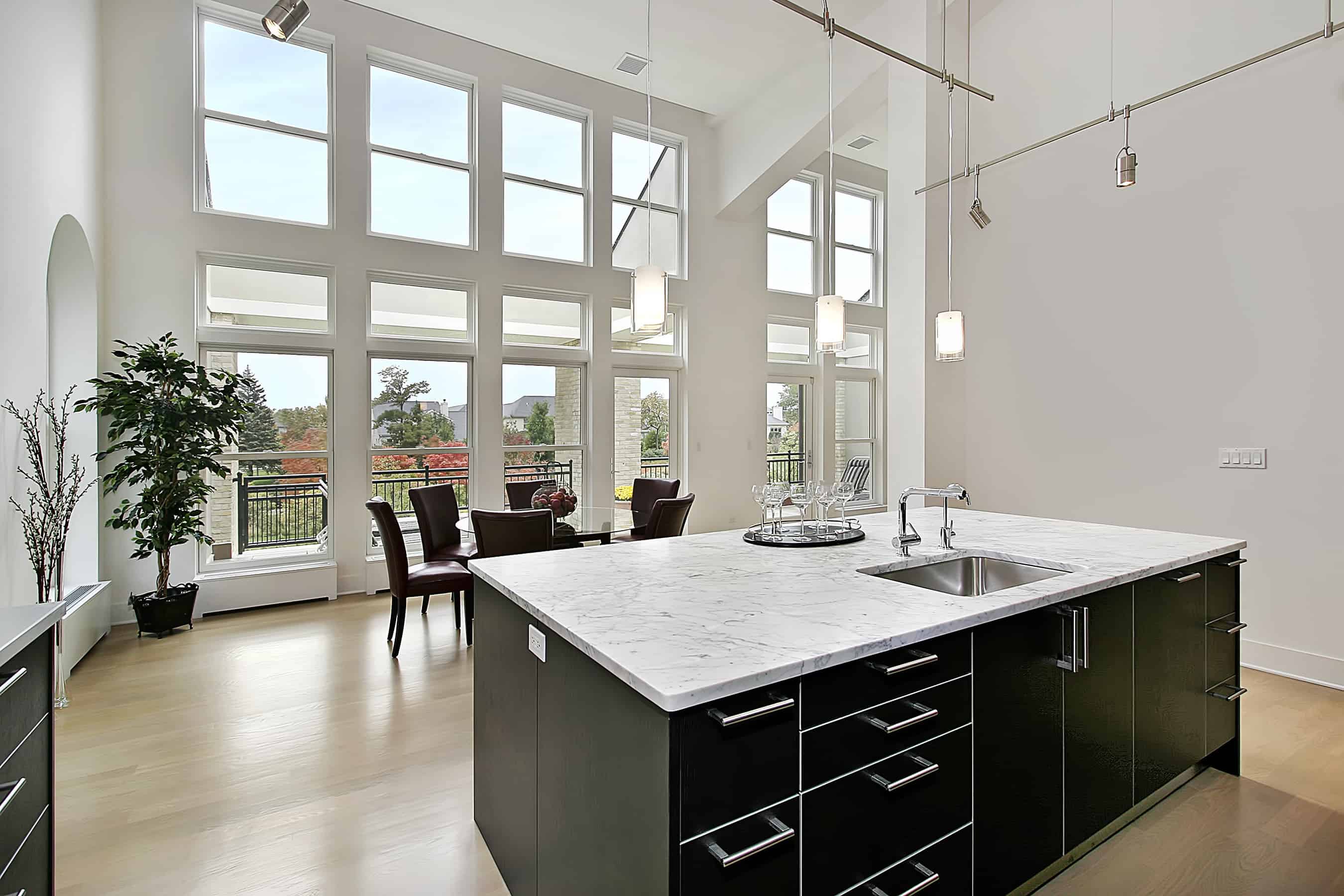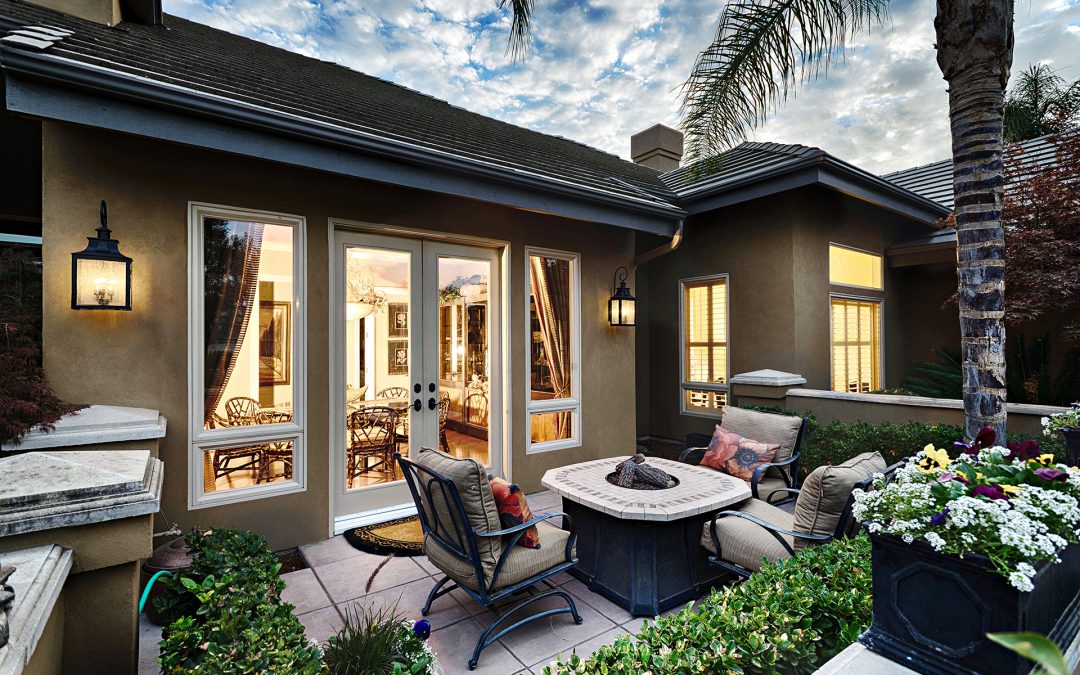When it comes to creating a comfortable and energy-efficient home, selecting the right windows for your climate is of utmost importance.
Windows not only provide natural light and ventilation but also play a crucial role in maintaining the desired temperature inside your home.
In this comprehensive guide, we will explore the different climate zones and their characteristics, discuss the impact of climate on windows’ performance, and provide valuable insights into choosing the most suitable window types for your specific climate.
So, let’s dive in and discover the key factors to consider when selecting windows for your climate.
Understanding Different Climate Zones
Before delving into the specifics of window selection, it is essential to understand the different climate zones and their unique characteristics. Climate zones are determined by factors such as temperature, humidity, and precipitation patterns. By identifying your specific climate zone, you can make informed decisions about the type of windows that will best suit your needs. Let’s take a closer look at the different climate zones:
- Tropical Climate: This climate zone is characterized by high temperatures and humidity throughout the year. Windows in tropical climates should focus on heat reduction and ventilation.
- Hot Arid Climate: Hot arid climates are known for their extremely high temperatures and low humidity. Windows in these areas should prioritize heat reduction and protection from dust and sandstorms.
- Mediterranean Climate: Mediterranean climates experience mild, wet winters and hot, dry summers. Windows in these regions should provide a balance between heat insulation and ventilation.
- Temperate Climate: Temperate climates have moderate temperatures and distinct seasons. Windows in these areas should focus on energy efficiency and insulation.
- Cold Climate: Cold climates are characterized by long, harsh winters and short, cool summers. Windows in these regions should prioritize insulation and heat retention.
By understanding the specific characteristics of your climate zone, you can make informed decisions about the type of windows that will best suit your needs.

Window Types for Hot Climates
Living in a hot climate requires windows that can effectively keep your home cool and comfortable. Here are some window types that are well-suited for hot climates:
- Double-Glazed Windows with Low-E Coatings: Double-glazed windows consist of two panes of glass with a layer of insulating gas in between. Low-emissivity (Low-E) coatings further enhance their energy efficiency by reducing heat transfer. These windows help keep the heat out while allowing natural light to enter.
- Tinted or Reflective Windows: Tinted or reflective windows are designed to reduce the amount of heat and glare entering your home. They work by reflecting a portion of the sunlight, keeping your interiors cooler and more comfortable.
- Impact-Resistant Windows: In areas prone to hurricanes or strong winds, impact-resistant windows are a wise choice. These windows are designed to withstand high winds and flying debris, providing both safety and energy efficiency.
- Windows with Solar Control Films: Solar control films can be applied to existing windows to reduce heat gain. These films reflect a significant amount of solar radiation, helping to keep your home cooler and reducing the need for excessive air conditioning.
When selecting windows for hot climates, it is crucial to consider their ability to reduce heat gain while still allowing natural light and ventilation.
Window Types for Cold Climates
In cold climates, windows play a vital role in keeping your home warm and energy-efficient. Here are some window types that are well-suited for cold climates:
- Triple-Glazed Windows: Triple-glazed windows provide an extra layer of insulation compared to double-glazed windows. The additional pane of glass and insulating gas between the panes help to minimize heat loss and keep your home cozy during the cold winter months.
- Gas-Filled Windows (Argon or Krypton): Gas-filled windows, filled with either argon or krypton gas, offer enhanced insulation properties. These gases are denser than air, reducing heat transfer and improving energy efficiency.
- Windows with Warm-Edge Spacers: Warm-edge spacers are used to separate the glass panes in a window. They are designed to reduce heat loss through the edges of the window, improving overall energy efficiency.
- Low-Conductivity Window Frames (e.g., Vinyl or Fiberglass): Window frames made from low-conductivity materials such as vinyl or fiberglass help to minimize heat transfer. These materials have excellent insulation properties, reducing heat loss and improving energy efficiency.
When selecting windows for cold climates, it is essential to prioritize insulation and heat retention to ensure a warm and comfortable home.
Window Types for Moderate Climates
Moderate climates require a balance between energy efficiency and comfort. Here are some window types that are well-suited for moderate climates:
- Double-Glazed Windows with Low-E Coatings: Double-glazed windows with Low-E coatings are a versatile option for moderate climates. They provide insulation while still allowing natural light to enter your home.
- Windows with Tilt and Turn Functionality: Windows with tiltand turn functionality offer flexibility in terms of ventilation. They can be tilted open at the top for fresh air circulation or fully opened inward for easy cleaning and maximum airflow.
- Windows with Operable Louvers or Blinds Between the Glass: Windows with operable louvers or blinds between the glass provide control over privacy, sunlight, and ventilation. These windows allow you to adjust the angle of the louvers or blinds to regulate the amount of light and airflow entering your home.
When selecting windows for moderate climates, it is important to consider both energy efficiency and the ability to customize ventilation and lighting according to your preferences.

Window Materials and Their Performance in Different Climates
In addition to considering window types, it is crucial to evaluate the performance of different window materials in various climates. Here is a comparison of commonly used window materials and their suitability for different climates:
- Wood: Wood windows offer excellent insulation properties and a classic aesthetic. They are suitable for moderate and cold climates, but proper maintenance is required to prevent warping or rotting in humid or wet climates.
- Vinyl: Vinyl windows are known for their durability, low maintenance, and energy efficiency. They are suitable for all climate zones and provide good insulation properties.
- Aluminum: Aluminum windows are lightweight, strong, and low maintenance. However, they have poor insulation properties and are prone to condensation, making them less suitable for cold climates.
- Fiberglass: Fiberglass windows offer excellent insulation, durability, and low maintenance. They are suitable for all climate zones and can withstand extreme temperature fluctuations.
By considering the performance of different window materials in relation to your specific climate, you can make an informed decision about the most suitable material for your windows.
Additional Considerations for Climate-Specific Window Selection
While climate is a significant factor in window selection, there are other important considerations to keep in mind. These include:
- Sun Exposure and Orientation: The orientation of your home and the amount of sun exposure it receives can impact the performance of your windows. South-facing windows receive the most sunlight, while north-facing windows receive the least. Consider the sun exposure and orientation of your home when selecting windows to optimize energy efficiency.
- Noise Reduction Requirements: If you live in a noisy area, such as near a busy road or airport, consider windows with noise reduction features. These windows are designed to minimize external noise, providing a quieter and more peaceful indoor environment.
- Maintenance and Durability: Consider the maintenance requirements and durability of different window types and materials. Some windows may require regular upkeep, such as painting or sealing, while others are virtually maintenance-free.
- Local Building Codes and Regulations: Familiarize yourself with local building codes and regulations regarding window installation. Certain areas may have specific requirements for energy efficiency or safety, and it is important to comply with these regulations.
Considering these additional factors will ensure that your window selection is not only climate-specific but also tailored to your specific needs and preferences.

Consulting with Window Professionals
Choosing the right windows for your climate can be a complex task. It is highly recommended to seek expert advice from window professionals. They can assess your specific climate, evaluate your needs, and provide personalized recommendations. When consulting with window professionals, consider asking the following questions:
- What window types and materials do you recommend for my specific climate?
- Are there any local building codes or regulations I need to be aware of?
- What are the energy efficiency ratings of the recommended windows?
- Can you provide a cost estimate for the recommended windows, including installation?
- Do you offer any warranties or guarantees on the windows and installation?
By consulting with window professionals, you can ensure that you make the best choice for your climate and receive expert guidance throughout the window selection process.
Final Words
In conclusion, choosing the right windows for your climate is essential for creating a comfortable, energy-efficient, and aesthetically pleasing home.
By understanding the characteristics of your climate zone, exploring different window types, considering window materials, and taking into account additional factors, you can make an informed decision that meets your specific needs.
Remember to consult with window professionals to receive personalized advice and ensure a successful window selection process.
So, take the time to evaluate your climate, assess your requirements, and make a choice that will enhance the comfort and efficiency of your home for years to come.
FAQs About Choosing Windows For Your Climate
How do windows impact energy efficiency in a home?
Windows can significantly impact energy efficiency by either allowing heat gain or loss. Choosing energy-efficient windows with proper insulation properties can reduce energy consumption and lower utility bills.
What are Low-E coatings on windows?
Low-E coatings are thin, transparent layers applied to window glass to reduce heat transfer. They reflect infrared radiation while allowing visible light to pass through, improving energy efficiency.
How do I determine my specific climate zone?
Determining your specific climate zone can be done by consulting climate maps or resources provided by organizations such as the U.S. Department of Energy or local weather agencies. These resources typically categorize regions based on temperature, humidity, and precipitation patterns.
Can I install windows myself, or should I hire a professional?
While some homeowners may have the skills and experience to install windows themselves, it is generally recommended to hire a professional for window installation. Professional installers have the expertise and tools to ensure proper installation, which is crucial for optimal performance and energy efficiency.
Are there any government incentives or rebates available for energy-efficient windows?
Yes, in many countries, there are government incentives and rebates available for homeowners who install energy-efficient windows. These incentives aim to promote energy conservation and reduce greenhouse gas emissions. It is advisable to check with local government agencies or energy efficiency programs to see if you qualify for any incentives.
By addressing these frequently asked questions, we hope to provide you with additional information and clarity on the topic of choosing windows for your climate. If you have any further questions, don’t hesitate to reach out to window professionals or consult relevant resources.
Remember, selecting the right windows for your climate is a crucial step towards creating a comfortable and energy-efficient home. By considering factors such as climate zone, window types, materials, and additional considerations, you can make an informed decision that meets your specific needs. So, take the time to evaluate your climate, consult with experts, and enjoy the benefits of well-suited windows in your home.

